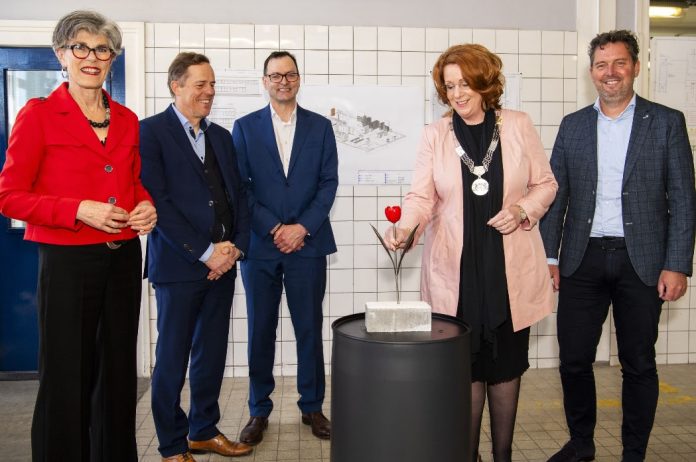
Two new research labs are being built by AkzoNobel at its Sassenheim site in the Netherlands to further propel the company’s pioneering product development. Work is about to start on building a technology center for powder coatings, while a new polymer lab has just opened, which will develop innovative resin technologies for all the company’s businesses.
The total investment in the Sassenheim site – AkzoNobel’s largest global R&D center – amounts to around €8 million. The facility already houses the biggest R&D teams in Europe for the company’s decorative paint and automotive and specialty coatings businesses. The addition of the two new labs will help the company further build on its global reputation for pioneering product development focused on providing creative solutions for customers.
“Creating the new powder coatings lab will enable us to carry out the fundamental research needed to continue to innovate with impact and bring more sustainable products to the market,” explained Roger Jakeman, AkzoNobel’s Chief Technology Officer.
Jakeman added, “By developing new technologies for the future, we’ll unlock more customer and application opportunities while supporting multiple options, including low bake cure. This will further enhance our ability to cut carbon emissions across the value chain”.
The recently opened polymer lab – part of the company’s Research organization – will accommodate fifteen scientists. It will mainly focus on the development of more sustainable polymer technologies and new coatings to support AkzoNobel’s ambition to halve carbon emissions across the value chain by 2030.
“The performance of a paint or coating is largely defined by the design of the resins used,” continued Jakeman. He added, “They’re a vital ingredient in the manufacturing process. The new lab will therefore play an important role in boosting our capabilities and strengthen our industry-leading expertise”. As per the press release, AkzoNobel employs around 3,000 R&D professionals worldwide in seventy laboratories, with more than €1.25 billion having been spent on research and development over the last five years.































